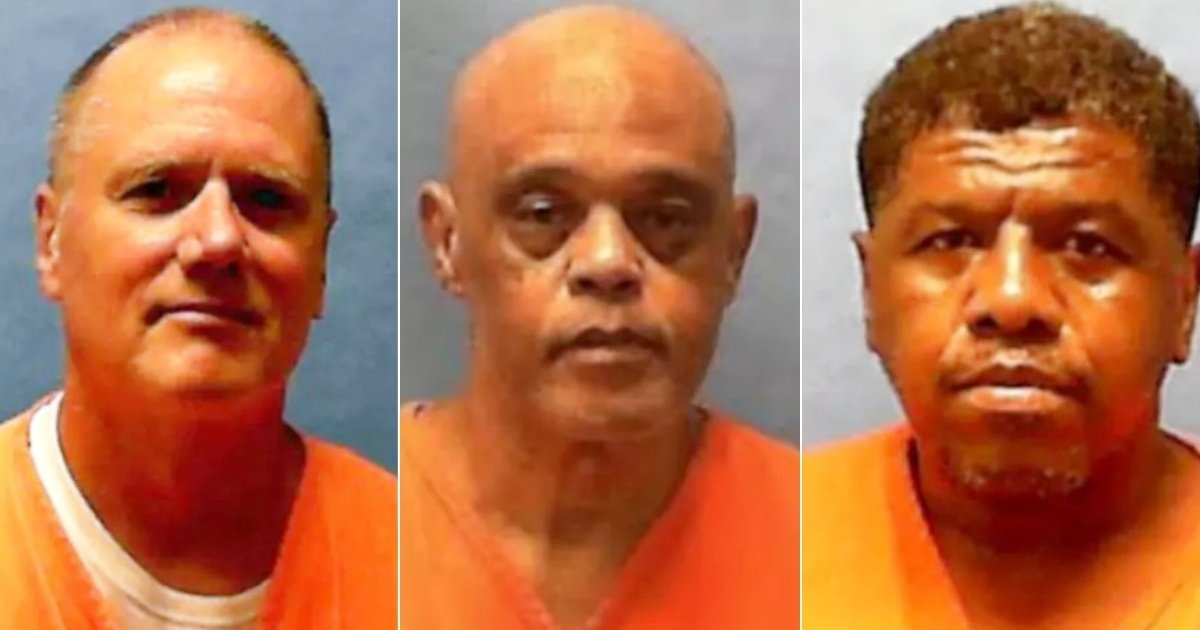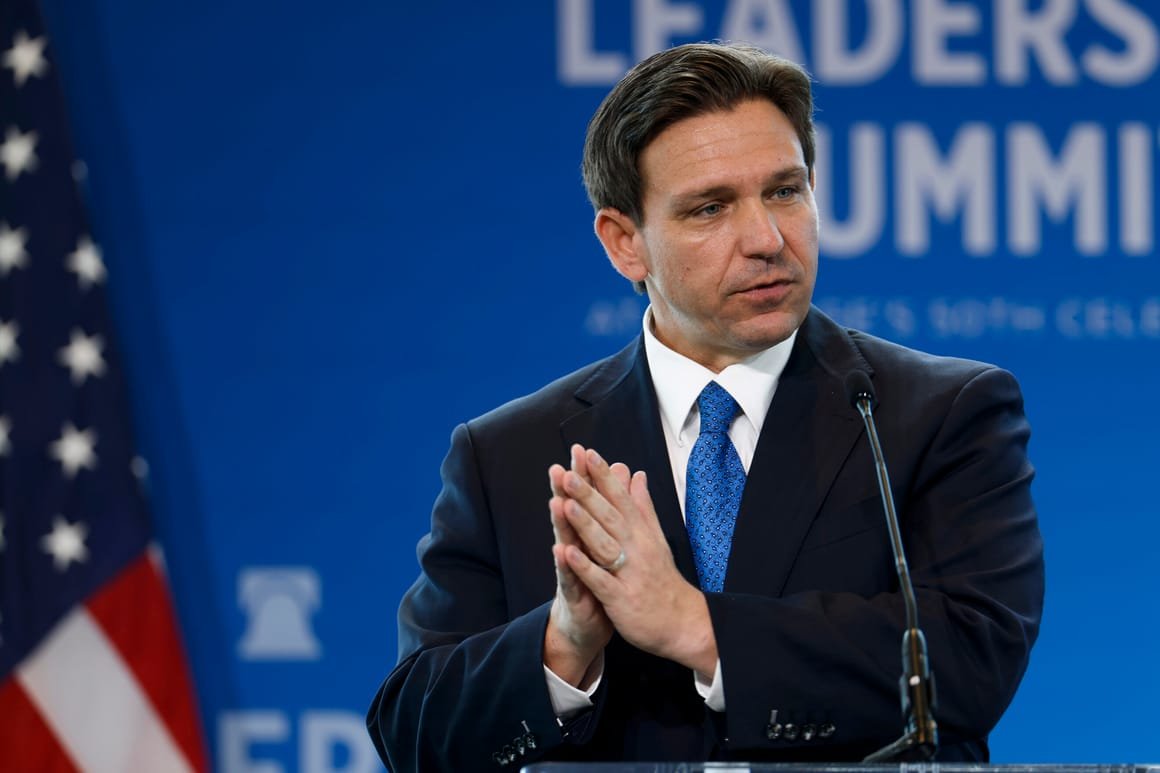Florida is on the verge of setting an unprecedented record in its application of the death penalty. Within a mere 30-day span, the state has scheduled three lethal injections, positioning itself as the leading jurisdiction for executions in the United States this year. Scheduled dates for these executions are July 31st, August 19th, and August
Florida is on the verge of setting an unprecedented record in its application of the death penalty. Within a mere 30-day span, the state has scheduled three lethal injections, positioning itself as the leading jurisdiction for executions in the United States this year. Scheduled dates for these executions are July 31st, August 19th, and August 28th, bringing the annual total to 11. This figure not only surpasses Florida’s previous record of eight executions in 2014 but also accounts for more than a third of all capital punishments nationwide thus far in the year, according to EFE.
Republican Governor Ron DeSantis has personally signed the execution orders, underscoring a state policy increasingly aggressive towards capital punishment, supported by legislators and prosecutors from his party. This acceleration in executions has sparked national controversy, with civil organizations, religious activists, and legal experts voicing concerns over the expedited judicial process and its moral implications.
Accelerating the Death Row Process
Typically, Florida death row inmates spend decades awaiting execution, but state authorities have expedited the appeals process. Analysts interpret this as a political maneuver, aimed at reinforcing tough-on-crime stances amid a nationally divided perspective on capital punishment. Florida not only leads in the number of executions in 2025 but also ranks second for the highest number of death row inmates (278), trailing only California (585). Ironically, Florida also holds the record for the most exonerations, with 30 death row inmates declared innocent since 1973.
The Cases: Grisly Murders and Decades of Waiting
1. Edward J. Zakrzewski II – July 31, 2025
Edward J. Zakrzewski, a former Air Force veteran, was convicted of murdering his wife Sylvia, aged 34, and their two young children, Edward (7) and Anna (5), in June 1994 in Okaloosa County. The killings occurred against the backdrop of a marital crisis, with his wife having filed for divorce. During the trial, it was revealed that he attacked Sylvia with a crowbar, strangled her with a rope, and, believing she was still alive, finished her off with a machete before killing his children with the same weapon. Zakrzewski fled to Hawaii and hid in a religious commune, later surrendering after his case was featured on the TV show “Unsolved Mysteries.” He pled guilty in 1996 and received a death sentence by a split jury recommendation (7-5), a margin not permissible under current state law. The U.S. Supreme Court denied his final appeal on July 30, with execution set for July 31 at 6:00 p.m. at Florida State Prison.
2. Kayle Barrington Bates – August 19, 2025
Kayle Bates, aged 67, was convicted of aggravated murder in 1982. He kidnapped a 24-year-old woman from an insurance office in Bay County and killed her. The trial evidence highlighted premeditation and extreme cruelty. Bates has spent over 40 years on death row, and his execution by lethal injection is scheduled for Monday, August 19, as per the order signed by DeSantis.
3. Curtis Windom – August 28, 2025
Curtis Windom, 59, was convicted of a series of murders in the Orlando area in 1992. He killed Johnnie Lee over a $2,000 debt, then his ex-partner Valerie Davis, and later her mother Mary Lubin, whom he encountered at a traffic light while fleeing police. During his escape, he also injured another person who survived. Sentenced to death in 1992, Windom has exhausted his legal options and is set for execution on August 28.
The Lethal Injection Debate
Florida employs a lethal injection protocol using a three-drug cocktail: a sedative, a paralytic agent, and a substance to stop the heart. While this method is legal, it has been criticized by medical experts and human rights organizations due to the potential for extreme suffering if improperly administered. Despite these criticisms, the state maintains this method as its legal execution standard.
Public Outcry and Opposition
The wave of executions has triggered strong reactions from civil and religious groups. Floridians for Alternatives to the Death Penalty (FADP) have launched campaigns advocating for a halt to executions, arguing that “each execution dehumanizes us all.” Miami Archbishop Thomas Wenski published an article firmly opposing capital punishment, arguing that life imprisonment without parole is a severe yet humane punishment. Wenski questioned whether a truly just society needs to resort to death as a tool for justice. Additionally, the Action Network organized a petition seeking clemency for Zakrzewski, noting that his jury could not have imposed the maximum penalty under current laws.
National Context and Trends
As reported by the Death Penalty Information Center, 27 individuals have been executed across the United States in 2025. Following Zakrzewski’s execution, Florida will account for a third of all executions in the country. Texas and South Carolina are tied for second place, each with four executions. This resurgence of the death penalty in Florida contrasts with the national trend, where support for capital punishment has dropped to one of its lowest levels since the 1970s. A 2024 Gallup poll indicated that only 53% of Americans support it, compared to peaks near 80% in previous decades.
Florida’s Death Penalty Surge: Key Questions
Why is Florida increasing the number of executions?
Florida is accelerating executions as part of a political strategy to reinforce tough-on-crime policies, supported by state authorities and legislators seeking to project a strong stance on criminality.
What are the ethical concerns regarding lethal injections?
Ethical concerns center around the risk of extreme suffering if the lethal injection protocol is improperly administered, leading to debates over its humaneness and potential violations of human rights.
How does Florida’s execution rate compare to other states?
Florida leads the nation in executions for 2025, surpassing other states and accounting for a third of all executions in the United States, with Texas and South Carolina following in second place.
 Internet Connectz
Internet Connectz 












